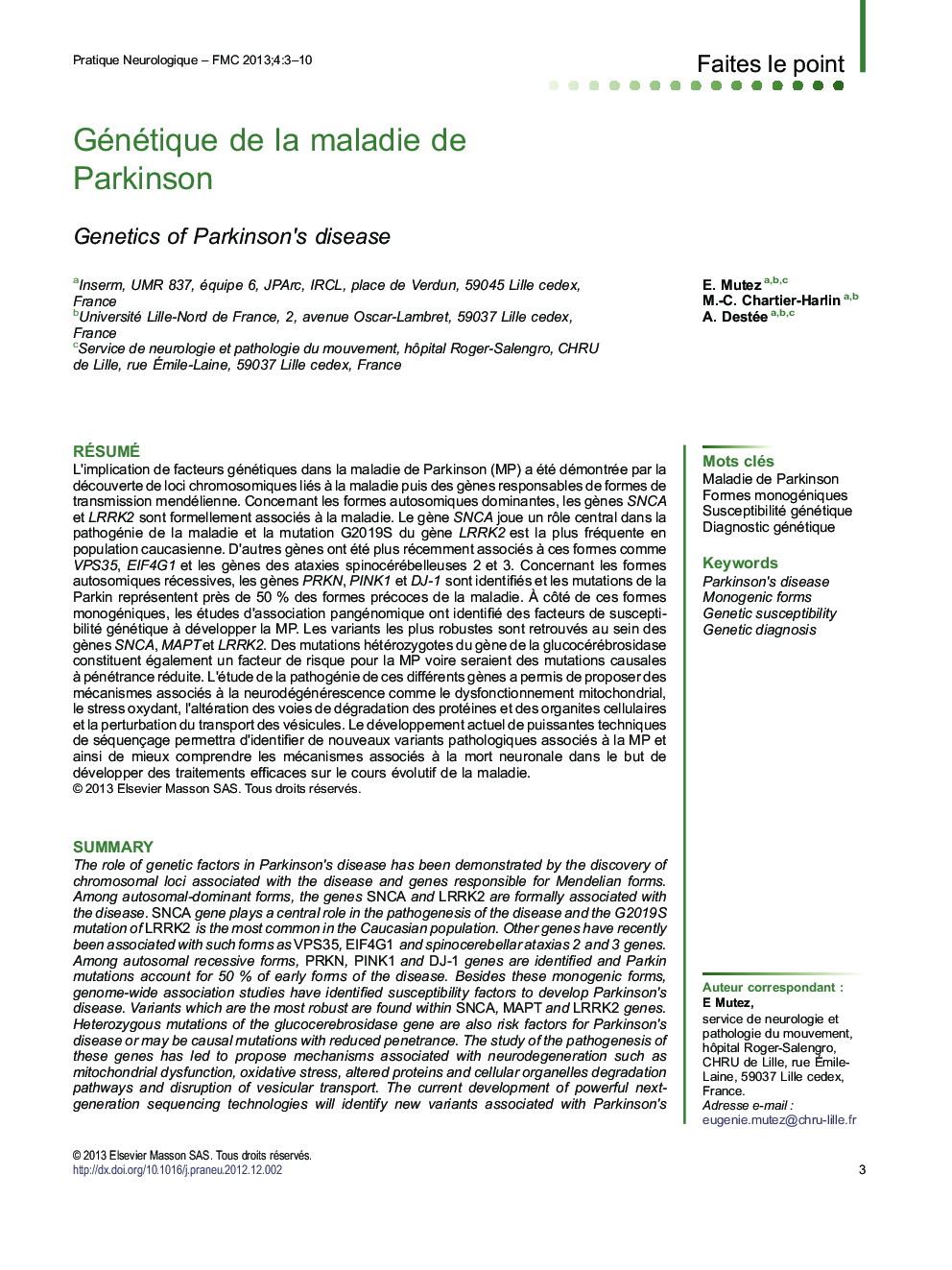| Article ID | Journal | Published Year | Pages | File Type |
|---|---|---|---|---|
| 3087302 | Pratique Neurologique - FMC | 2013 | 8 Pages |
Abstract
The role of genetic factors in Parkinson's disease has been demonstrated by the discovery of chromosomal loci associated with the disease and genes responsible for Mendelian forms. Among autosomal-dominant forms, the genes SNCA and LRRK2Â are formally associated with the disease. SNCA gene plays a central role in the pathogenesis of the disease and the G2019S mutation of LRRK2Â is the most common in the Caucasian population. Other genes have recently been associated with such forms as VPS35, EIF4G1Â and spinocerebellar ataxias 2Â and 3Â genes. Among autosomal recessive forms, PRKN, PINK1Â and DJ-1Â genes are identified and Parkin mutations account for 50Â % of early forms of the disease. Besides these monogenic forms, genome-wide association studies have identified susceptibility factors to develop Parkinson's disease. Variants which are the most robust are found within SNCA, MAPT and LRRK2Â genes. Heterozygous mutations of the glucocerebrosidase gene are also risk factors for Parkinson's disease or may be causal mutations with reduced penetrance. The study of the pathogenesis of these genes has led to propose mechanisms associated with neurodegeneration such as mitochondrial dysfunction, oxidative stress, altered proteins and cellular organelles degradation pathways and disruption of vesicular transport. The current development of powerful next-generation sequencing technologies will identify new variants associated with Parkinson's disease and will help better understand the mechanisms associated with neuronal death in order to develop treatments effective on disease progression.
Keywords
Related Topics
Life Sciences
Neuroscience
Neurology
Authors
E. Mutez, M.-C. Chartier-Harlin, A. Destée,
